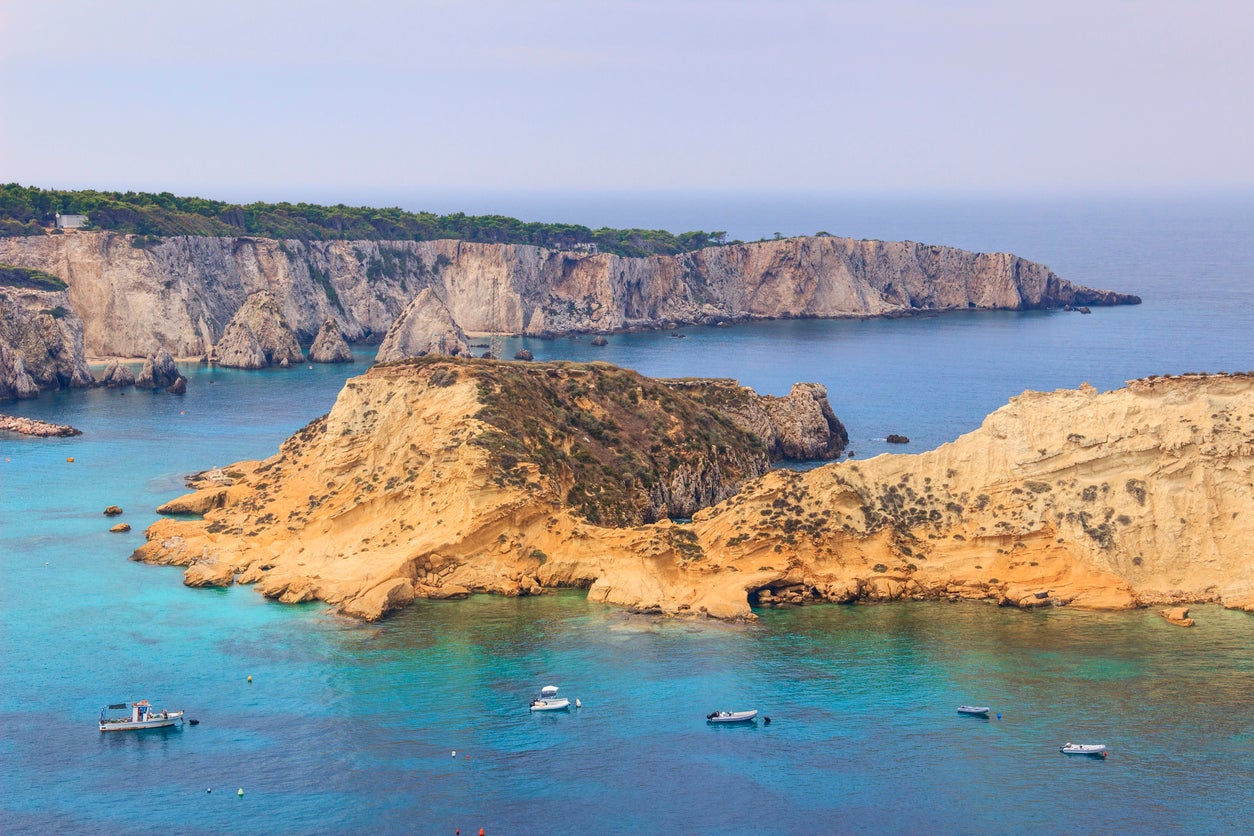Italian islands ban single-use plastic with fines of up to €500 for rule breakers
The rules aim to protect marine life
Your support helps us to tell the story
From reproductive rights to climate change to Big Tech, The Independent is on the ground when the story is developing. Whether it's investigating the financials of Elon Musk's pro-Trump PAC or producing our latest documentary, 'The A Word', which shines a light on the American women fighting for reproductive rights, we know how important it is to parse out the facts from the messaging.
At such a critical moment in US history, we need reporters on the ground. Your donation allows us to keep sending journalists to speak to both sides of the story.
The Independent is trusted by Americans across the entire political spectrum. And unlike many other quality news outlets, we choose not to lock Americans out of our reporting and analysis with paywalls. We believe quality journalism should be available to everyone, paid for by those who can afford it.
Your support makes all the difference.All plastic plates, cups and utensils will be banned on Isole Tremiti, an archipelago off the east coast of Italy, from 1 May 2018.
Anyone caught using plastic dining ware on the Italian islands will be fined between €50 and €500, reports The Local.
The new rules, imposed by the archipelago’s mayor, Antonio Fentini, were created to try to curb the high levels of plastic particles found in the water around the islands.
“Day after day we’re seeing humans kill our sea and we had to do something, immediately,” he said.
The discovery of high concentrations of microplastic surrounding Isole Tremiti was particularly worrying given the islands’ protected status; the archipelago lies within a protected marine reserve.
Fentini is encouraging people to use reusable and biodegradable utensils instead.
Plastic bottles, however, are still legal. He hopes this can change, with a move towards glass bottles instead, and aims to ban polystyrene containers too.
The levels of plastic were revealed by a Greenpeace investigation, which found 2.2 pieces of plastic per metre cubed of water, most of it polyethylene, which is commonly used to make plastic bags, bottles and packaging.
This was significantly higher than Italy’s average – 0.52 items per metre cubed of water.
However, the plastic may not all be coming from the Tremiti islands themselves, as currents frequently carry plastic particles towards islands, according to Greenpeace.
“I’m calling on the mayors of all islands and coastal areas to follow suit,” said Fentini. “Let’s all try to do some good for our planet.”
Plastic is a hot topic in the travel industry at the moment. Hurtigruten, the world’s biggest expedition cruise operator, announced recently it aims to be the first plastic-free cruise company. It will prohibit all unnecessary single-use plastic, including straws, glasses and bags, by 2 July.

Heathrow airport is also in on the action, announcing an ambitious plan to recycle all single-use coffee cups from over 20 of its retail and lounge business partners by the end of the year.
The initial stage will see retailers use a standardised paper cup which can be collected by the airport and recycled in the UK. Heathrow then plans to explore how to implement a reuse system to help phase out single-use cups altogether, as well as other plastic items such as straws.
Heathrow’s Chief Executive, John Holland-Kaye, said: “As a small city, we are committed to reducing our impact on the environment and using all our influence to ensure individual companies working within our boundaries do so as well. This announcement takes us one step further, ensuring all single-use coffee cups at the airport are able to be recycled with additional support from Heathrow.”

Join our commenting forum
Join thought-provoking conversations, follow other Independent readers and see their replies
Comments